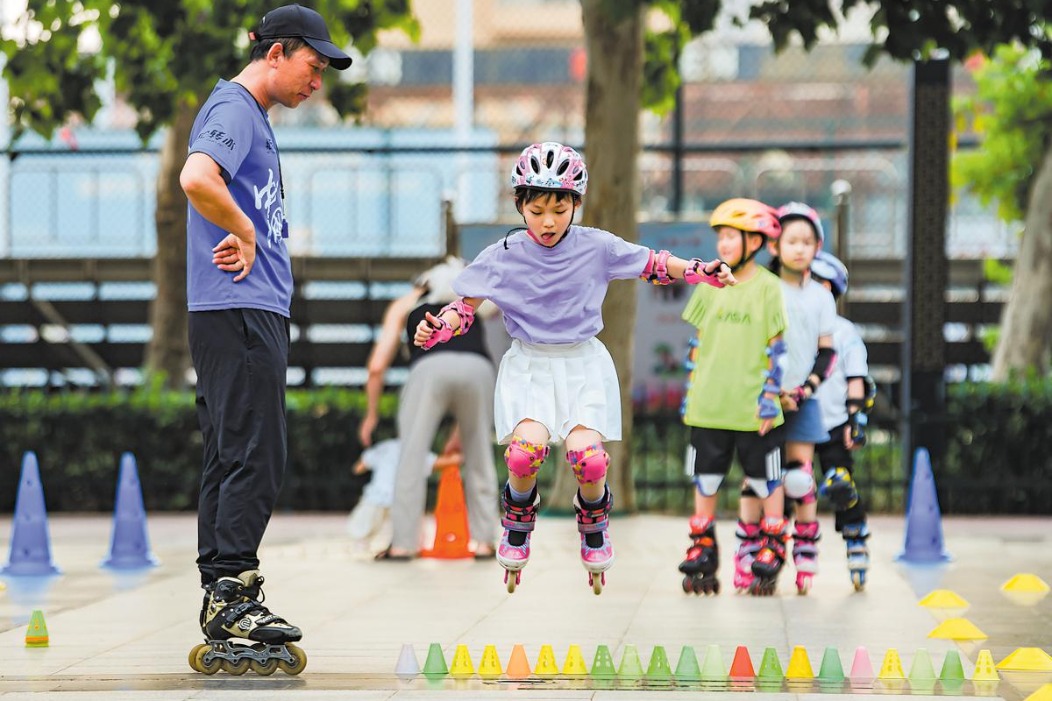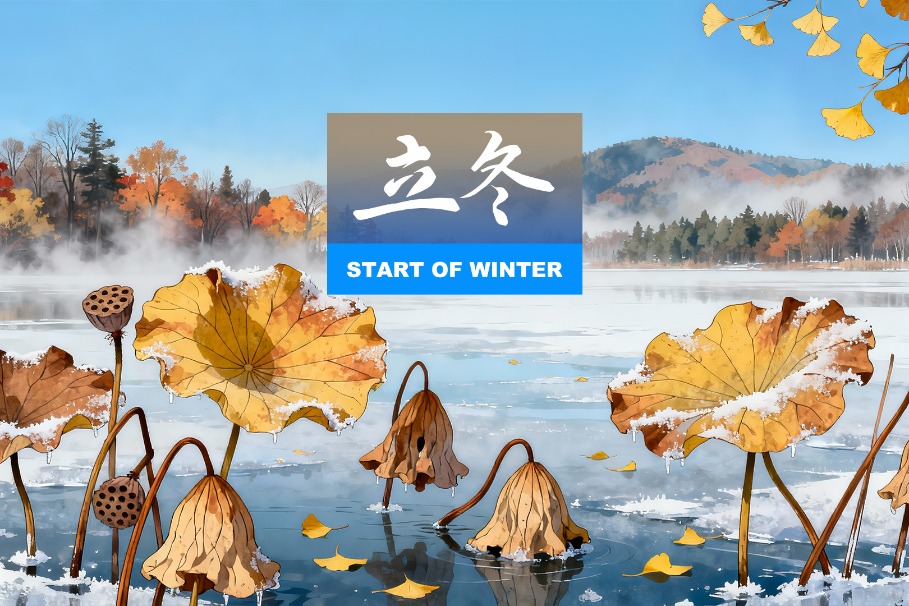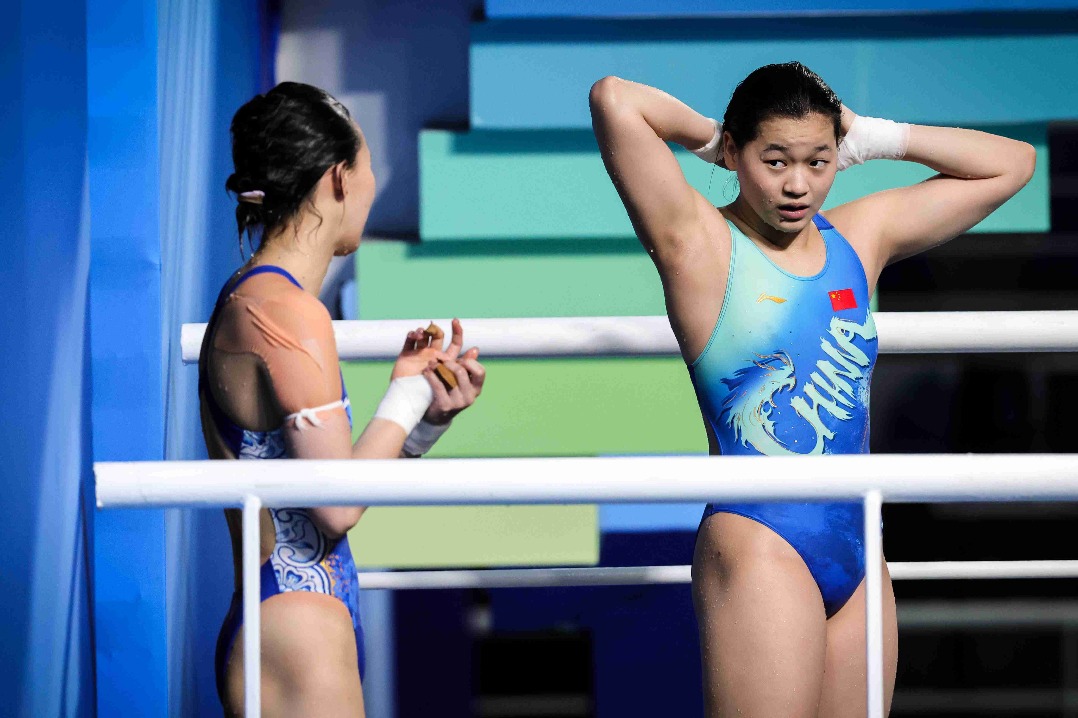The sound of music
Nepali women become musicians of centuries-old art traditionally practiced by men


Editor's note: In this weekly feature China Daily gives voice to Asia and its people. The stories presented come mainly from the Asia News Network (ANN), of which China Daily is among its 20 leading titles.
Nepal's women and girls, once excluded from playing the country's traditional Newari musical instruments, are now taking the lead in preserving and revitalizing the centuries-old heritage.
One example of the change is the Lubhoo Dhaa Khala which, according to its members, is the oldest group of its kind in Lubhu of Lalitpur district. This group performs especially during jatras and other major Newari festive events.
The group boasts a new batch of about 40 musicians, 20 of them women and girls. The musicians are mastering the percussive dhaa and khin, and the cymbals tah and bhusya, instruments historically reserved for men.
The group's performances have become a central part of local festivities, especially during the Gunla festival — a monthlong celebration marking spiritual reflection and cultural devotion.
The dhaa instrument is central to the festival's observance. It is revered as the favorite instrument of Buddha and is believed to bring good luck and prosperity when played around religious structures like temples.
"In the past, Newari instruments like the dhaa were associated with male musicians, creating an exclusionary tradition," said Bekh Narayan Shrestha, the head teacher of Lubhoo Dhaa Khala.
As social attitudes evolved, so did the practices surrounding these cultural symbols. Women are now claiming their rightful place in their heritage, learning and performing the art.
Bekh Narayan also said that while in the past playing the instrument was reserved for the higher Shrestha caste, it is no longer a barrier — anyone can be a disciple.
Concerned about the traditional instruments nearing extinction, Bekh Narayan took the initiative in 2000 to establish a group and personally began teaching students.
While the Lubhoo Dhaa Khala began as a male-dominated group, its evolution into an inclusive space for women is lauded as an example of progress. Mandevi Shrestha, 38, who is Bekh Narayan's daughter, is one beneficiary of the group's outreach.
"I was always a rebel," Mandevi said. "I put pressure on my father, who was the group's teacher, to teach us girls as well. I told him, 'If boys in my own home can learn to play it, why can't I?'
"My persistence paid off and in 2014, five women learners were included in the boys group."
When some women who had joined in 2014 migrated after marriage, the number of women in the group dwindled. At the time, conservative societal attitudes discouraged many women from learning alongside men. Moreover, the women were often not given priority. This led to a temporary halt in teaching women.
But over time, as more women expressed interest and the teachers faced pressure from within their own families — with their daughters and female relatives also wanting to play — by 2017 the group formally began recruiting all-female batches.
"When we first started, there was evident discrimination," said Ashmita Pradhan, 23, who started learning the instrument in 2014 and has been teaching all-female batches since 2017.
"Women were not seen as equals then. I'm glad to see things have improved. Nowadays, young girls join the group with full family support."
The change is most evident in the current generation of musicians.
Prayusha Shrestha, an 11-year-old student at Future Star Academy in Lubhu, began learning the dhaa in 2023. "After school, I would rush to finish my homework and run to the training sessions," she said. "I was always excited to learn."
Another student, 20-year-old Sarishma Shrestha, said: "From childhood, I listened to these instruments. But at the time, the participation of girls wasn't encouraged. When I finally got the chance last year, I was elated."
The inclusion of women in Lubhoo Dhaa Khala has inspired a new generation of learners, some of them under 10 years old.
Others like Samira Shrestha, 25, Neshana Shrestha, 24, and Kriti Shrestha, 23, have been playing since 2017. The trio belongs to the second batch of female learners, trained by Pradhan herself.
According to Samira, in the past, when they played during festivals, there were very few women involved. Despite the judgmental stares, they played with confidence.
"Today, the number of girls has increased significantly, and it's great to see women and girls reclaim their space in preserving our culture, heritage and music," Samira said.
























